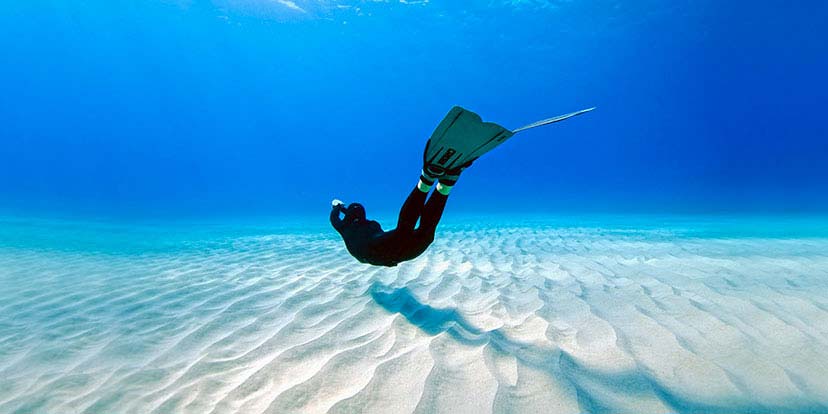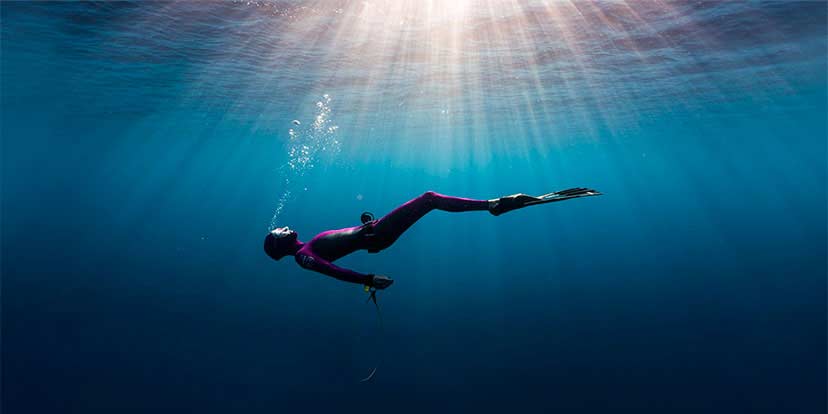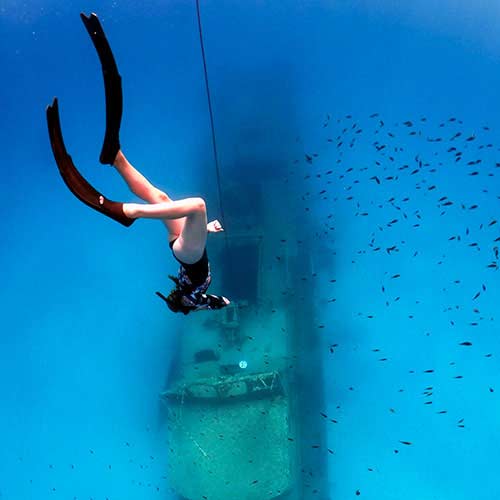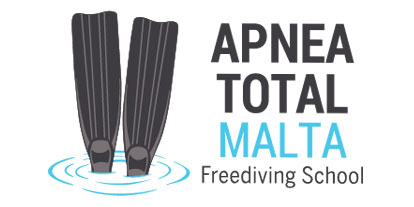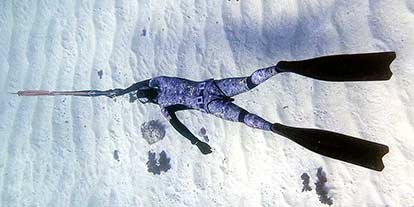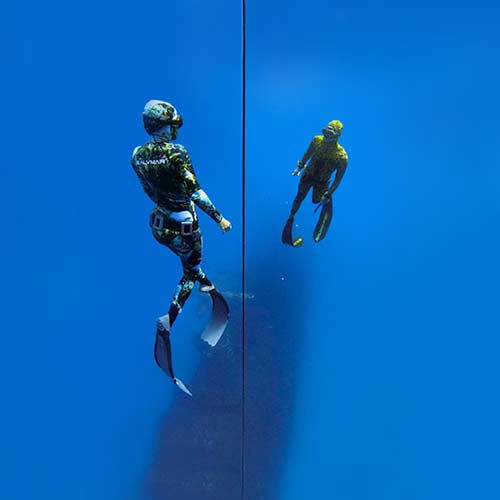Freediving Explained

What is Freediving?
Freediving is a form of underwater diving that relies on a diver’s ability to hold her/his breath until resurfacing, rather than on the use of scuba gear.
There are different ways to practice this sport: by covering distances under the water, going deep or simply floating on the surface. Freediving can be practiced in the open water or confined water.

For whom is Freediving?
Freediving is sometimes considered an extreme sport but for us, it is above all a sport based on relaxation and mental control. As such, it is a healthy activity that can be practiced by everyone. Free diving is the most serene and purest way to discover the world that lies under the surface. It is also the most natural since the human capacity for freediving is on par with some marine mammals.
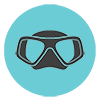
Why Freedive ?
Freediving is more common than you may think and many sports use its techniques: spearfishing, snorkeling, surf, underwater sports, etc.
Freediving is also one of the best activities to partake in exploring the underwater world: without excessive scuba diving gear or bubbles, you get closer to marine life.
Benefits of Freediving

For your body
- Strengthens muscles
- Improves flexibility
- Burns calories
- Strengthens the cardiovascular system
- Improves oxygenation
- Strengthens your lungs
- Increases thoracic flexibility

For your mind
- Improves focus
- Strengthens willpower
- Teaches ways to relax
- Mental control
- Helps control anxiety
- Relieves stress
- A better understanding of your mind

Other benefits
- Brings you closer to the marine life
- Teaches discipline
- Pushes you to your limits
- Boosts confidence
- Requires very little equipment
- Helps control asthma
- Explore underwater in a natural way
Freediving compared to...
Scuba Diving
Recreational scuba divers and free divers probably share the same passion for the ocean but they experience it differently. The main difference between these two underwater activities is breathing. While freedivers hold their breath during their dives, scuba divers are taught to never hold theirs. Freedivers don't inhale compressed air, so there is no need for them to worry about safety stops and safe ascent rates the way divers do when they scuba dive. The lack of diving equipment allows the freediver to explore his surroundings more freely. This can be very thrilling during wreck diving or cave diving. Marine life encounters are more favorable to freedivers around the reefs and shallow water thanks to the lack of bubbles.
Freediving can actually help a scuba diver improve his diving skills. Relaxing is a key-factor in freediving, and learning how to relax before a dive can help scuba divers with their air consumption. Also, since free divers descend quicker, the equalization methods they use are more efficient and can help the divers compensate for the pressure increase. Last but not least, freediving helps with body position and kicking.
Snorkeling / Skin Diving
Snorkelling consists of swimming at the surface while looking down upon the underwater world below. There is no diving training required since the snorkeler doesn't go below the surface. In order to see and breathe underwater, the snorkelers use a mask and snorkel or full face mask. Snorkeling fins can complete the equipment needed to snorkel.
Skin diving represents the middle ground between snorkeling and freediving. Skin divers are snorkelers that take a deep breath to dive a few meters down to enjoy the aquatic world better.
When a snorkeler or skin diver becomes a freediver, it is a brand new world that opens in front of him. Since he is no more confined to the surface only, he can dive deeper, explore caves and wrecks, etc.
How to Freedive?
Freediving, also known as breath-hold diving, is a way of diving that relies entirely on the free diver's ability to hold his breath under water. There is no need for a breathing apparatus like in scuba diving. You actually don't need equipment to free dive, though we do use freediving gear for comfort: low volume mask, snorkel, freediving fins, wetsuit and weight belt.
Contrary to what one might think, the human body is able to adapt to an aquatic environment: being submerged in the water triggers the Mammalian Diving Reflex. This diving reflex is a physiological response to breath-holding. This being said, there are risks associated with freediving, like shallow water blackout for example. While freediving is natural, it is very important to learn to freedive with a qualified instructor. All risks can indeed be avoided with proper breathing techniques and freediving training.
It is important to take a freediving course to learn how to freedive, as there is no substitute for a skilled, knowledgeable and safe instructor committed to teaching proper freediving techniques and safety procedures. You will find below an overview of our courses and we encourage you to visit our page dedicated to beginner freedivers.
Do you have an enquiry?
Any doubts or questions?
Contact us now!
Let us know what you need and we will get back to you as quickly as possible.
Click HERE !!Ready to Book a course or an activity?
Do it now!
Book it now!
Let us know when you would like to start and we will get back to you ASAP.
Book it HERE !!
